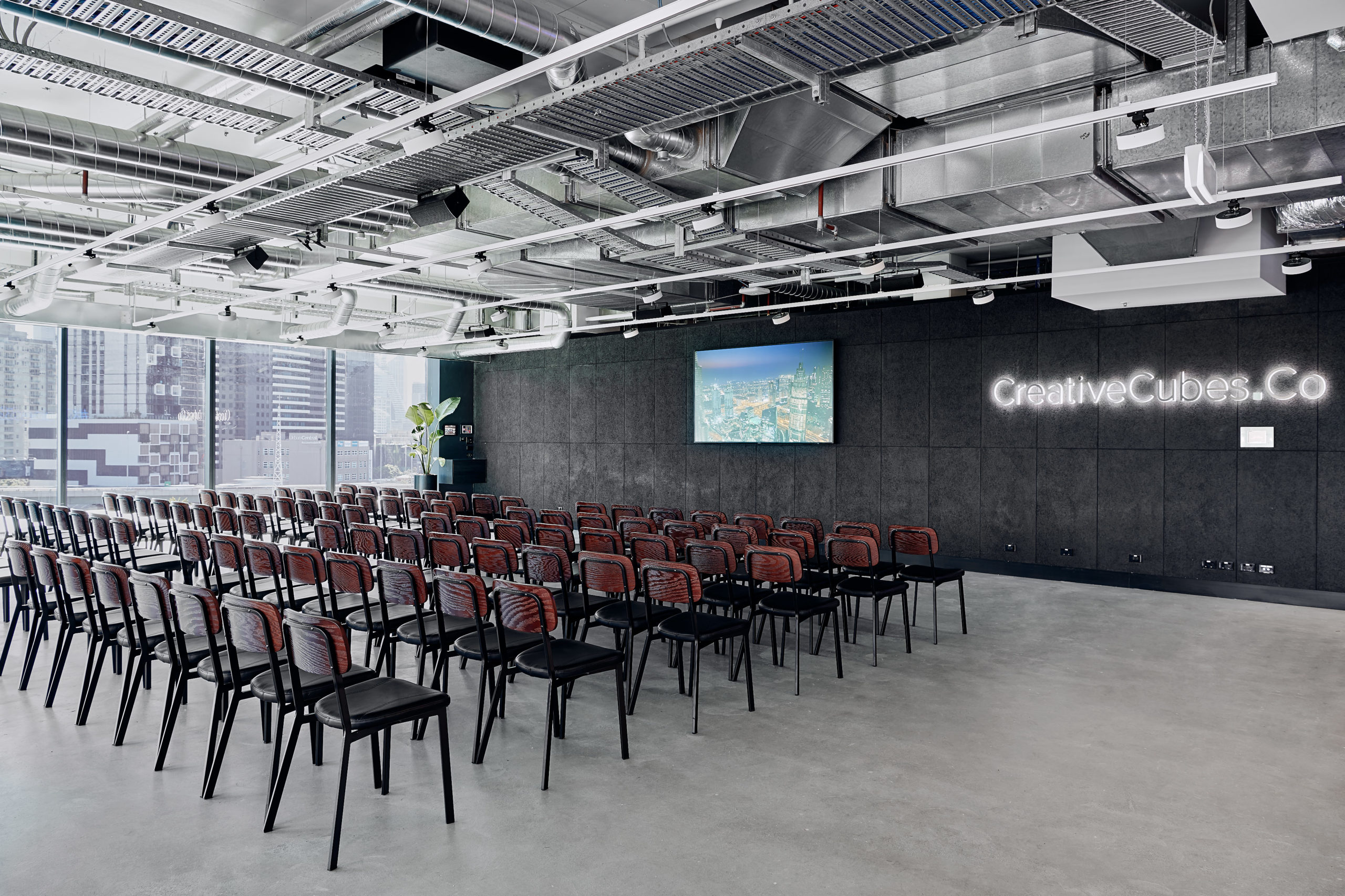How to Plan a Successful Conference
A great conference doesn’t just happen. It’s the result of thoughtful preparation, smart decisions and clear goals. Whether you’re organising a corporate summit, industry panel, or networking workshop, any event requires attention to detail, a collaborative team and the right venue.
In this complete guide on how to plan a successful conference, our experts at MicDrop will walk you through the process step by step, answering the most common questions people have about how to plan a successful conference, and giving you tips to help every element shine.
Where Should You Start When Looking at How to Plan a Conference? Always Begin with Your Objectives and Audience.
Every corporate event needs a purpose. Before booking a venue or promoting the event, ask yourself:
- What is the primary goal of this conference?
- Who are we targeting and what do we want them to gain?
- Is the focus on networking, learning, product exposure, or something else?
Having a clear understanding of your audience enables you to craft your messaging, content and overall experience more effectively. Whether you’re organising a business conference or a leadership summit, success starts with alignment on intent.
Who Should Be on Your Conference Planning Team? Assign Clear Roles Early to Streamline Your Planning
A successful event isn’t a solo effort. As part of your planning checklist, assemble a core team with specific responsibilities:
- Event Lead: Oversees the entire planning process
- Logistics: Handles the venue, catering details, timelines and run sheet
- Coordinator: Manages communications and schedules with facilitator, speaker, and/or any contacts contributing to the event
- Marketing: Coordinates with marketing suppliers, drives registrations, event promotion and ticket sales
- Tech & AV: Prepares event visuals, oversees equipment setup of venue and ensures connectability with company devices
Having the right people in place ensures no detail is missed and allows for smooth execution.
How Do You Budget for a Conference? Break It Down Into Categories and Include a Buffer
Budgeting is one of the most important parts of event planning. Outline all anticipated costs and assign a value to each category.
A basic budget should include:
- Venue hire and setup
- Audio-visual equipment and support staff
- Catering
- Speaker fees and travel, if applicable
- Marketing and promotional materials
- Insurance, staff, and contingency fund (10–15%)
This approach ensures that your conference planning remains financially viable and aligned with your organisation’s goals.
What Should You Look for in a Conference Venue? Choose a Venue that Matches Your Format, Size & Technical Needs
Venue selection can make or break your event. Use these venue selection tips to guide your decision:
- Does the space suit your expected number of attendees?
- Can it be configured for the layout you require?
- Is it equipped with AV, Wi-Fi, and breakout rooms?
- Is it close to public transport and parking?
- Does it offer onsite or nearby accommodation?
MicDrop offers premium conference venues across Melbourne, including Hawthorn, South Melbourne, Richmond, Carlton, and Collingwood , all with flexible layouts, state-of-the-art technology and onsite support to ease your planning.
How Far in Advance Should You Book Speakers? Secure Your Speakers Early and Support Them Throughout the Process.
Once you have determined your theme and goals, start reaching out to potential speakers. Provide them with:
- A clear brief on the event and their role
- Guidelines on session length and format
- Audience insights and expectations
- Tech setup and deadlines for presentation materials
- Accommodation and transport information if needed
Giving your speakers what they need early helps maintain momentum and professionalism throughout the planning process.
How Do You Attract Attendees to a Conference? Use Multi-Channel Marketing to Build Awareness and Engagement
One of the most overlooked aspects of hosting a successful conference is the effective promotion strategy. Boost registrations through:
- A dedicated event page or microsite with all details
- Email campaigns with key dates and speaker updates
- LinkedIn and Instagram posts using relevant hashtags
- Speaker and sponsor shoutouts across social platforms
Consistent promotion in the weeks leading up to the event will help you fill your seats and create anticipation.
What Are the Must-Haves on Your Conference Day Checklist? Logistics, Tech and People Management
When planning how to run a successful conference, the day itself is where everything comes together. Key considerations include:
- Registration desk and signage
- Dedicated bump in time for AV setup and testing
- Printed materials (programs, name tags, signage)
- Catering service times and dietary requirements
- Speaker coordination and run-sheet
- Emergency contacts
This is where your detailed conference planning checklist pays off. Assign staff to key zones and keep everyone in the loop with a run sheet.
How Do You Keep Your Conference Engaging? Balance Great Content with Thoughtful Experiences
Even in a professional setting, people want to feel energised and involved. Use these best practices for conference planning to keep things dynamic:
- Mix formats – keynotes, panels, Q&As, and breakout workshops
- Include dedicated break time for networking between sessions
- Create a hashtag wall or live Q&A feed via hybrid forums
- Offer wellness breaks or coffee corners
- Use branded visuals to keep a cohesive look
Interactive elements go a long way in making your conference memorable.
What Should You Do After the Conference? Gather Feedback, Share Resources and Follow Up.
Conference planning doesn’t end when the last session wraps up. Post-event activities are critical to long-term success:
- Email a feedback form to all attendees and speakers
- Share recorded sessions or slide decks
- Post highlights and thank-yous on social media
- Review budget, attendance and survey responses
- Create a debrief report for future planning
Reflecting on what worked (and what didn’t) helps you continuously improve your corporate conference planning guide.
So, What Does It Take to Plan a Successful Conference? Strategy, Structure, and Support
If you’re wondering how to plan a conference that feels seamless and impactful, the answer lies in clear goals, collaborative planning and a great venue partner. With the right checklist and support team, you can confidently organise a business conference that educates, inspires and leaves a lasting impression.
At MicDrop, we make venue hire easy with flexible, fully equipped spaces across Melbourne. Our conference venues are designed for success, with expert on-the-day support, tailored catering and a dedicated operations coordinator who works with you in the lead-up to your event, ensuring every detail is locked in before the big day.
Ready to start planning? Get a quote today or contact us today for more information.


